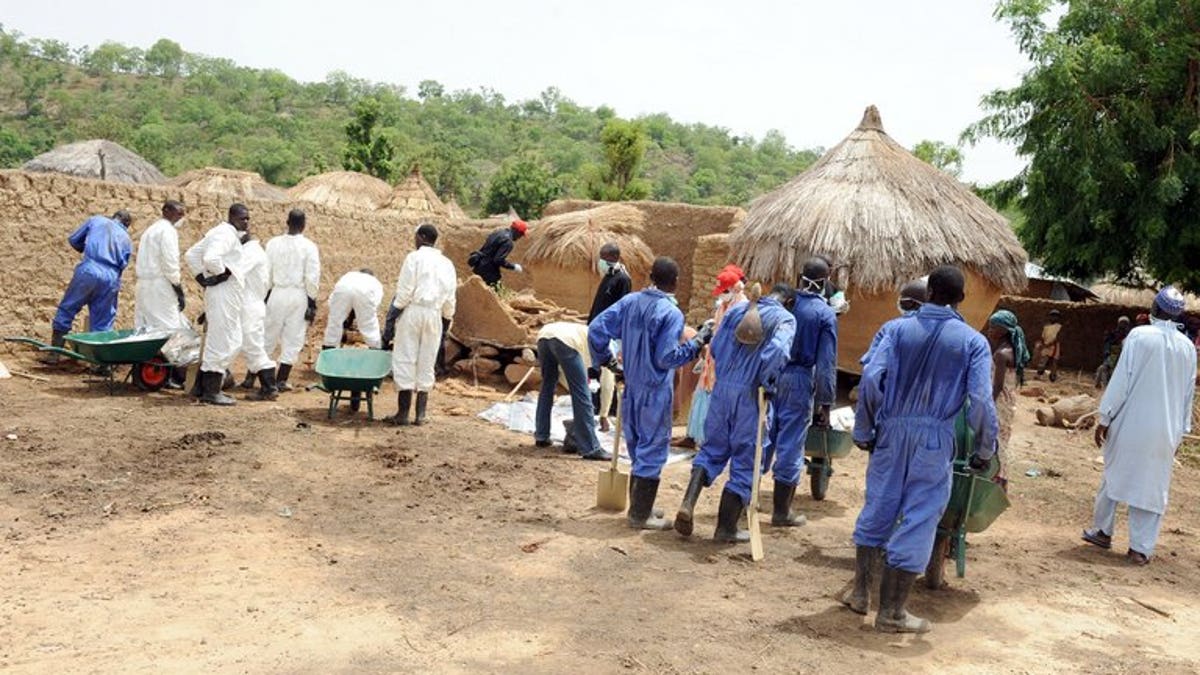
Health workers excavate soil contaminated with lead poison in Dareta village, in the Zamfara state on June 10, 2010. Medical charity MSF said Wednesday the Nigerian village that suffered an unprecedented and deadly lead poisoning outbreak had been cleared of the toxin, but that nearly 1,000 exposed children needed treatment. (AFP/File)
LAGOS (AFP) – Medical charity MSF said Wednesday a Nigerian village that suffered an unprecedented and deadly lead poisoning outbreak had been cleared of the toxin, but that nearly 1,000 exposed children needed treatment.
The crisis in northwest Zamfara state first came to light in 2010, and was "the worst outbreak ever recorded," Medecins Sans Frontieres said. At least 400 children have died from poisoning.
Lead exposure in several areas of Zamfara was blamed on unsafe techniques used in extracting gold. Illegal mining is more lucrative than agriculture for impoverished farming communities.
Initially, the communities had largely concealed or denied the fatalities and illness that came from lead poisoning for fear that authorities would ban mining activities.
The problem was compounded by a requirement that medical staff clear the entire area of toxins before treatment could begin.
Michelle Chouinard, MSF's Nigeria country director, said the cleanup process was completed on July 15 in Bagega, the worst affected village.
Thousands of children were exposed to a heightened risk of infection after Nigeria delayed funds of $3.0 million (2.3 million euros) it had promised for the operation, rights groups said.
Of the 1,010 children screened in Bagega, elevated levels of lead were found in almost all of them, Chouinard told AFP.
Those affected were now undergoing treatment, she said, with 216 requiring an intensive course of drugs to counteract dangerous levels of lead in their bloodstreams.
Aside from the direct threat of lead poisoning, those with higher toxin levels were at greater risk of other infections such as malaria "because their system is already weakened," the MSF director said.
A key priority for MSF is to ensure that locals abandon the dangerous mining practices that sparked the crisis, but Chouinard said more work was required.
"It is something that needs to be a continuous effort," she said. "The community members need to earn a living, but they also need their children to be healthy."








































